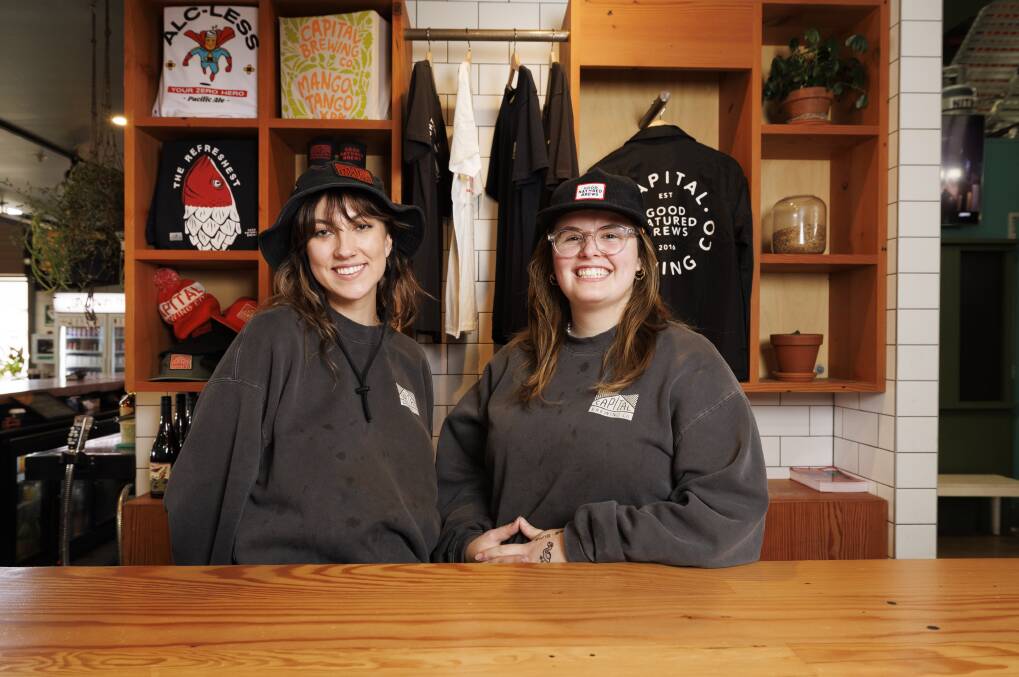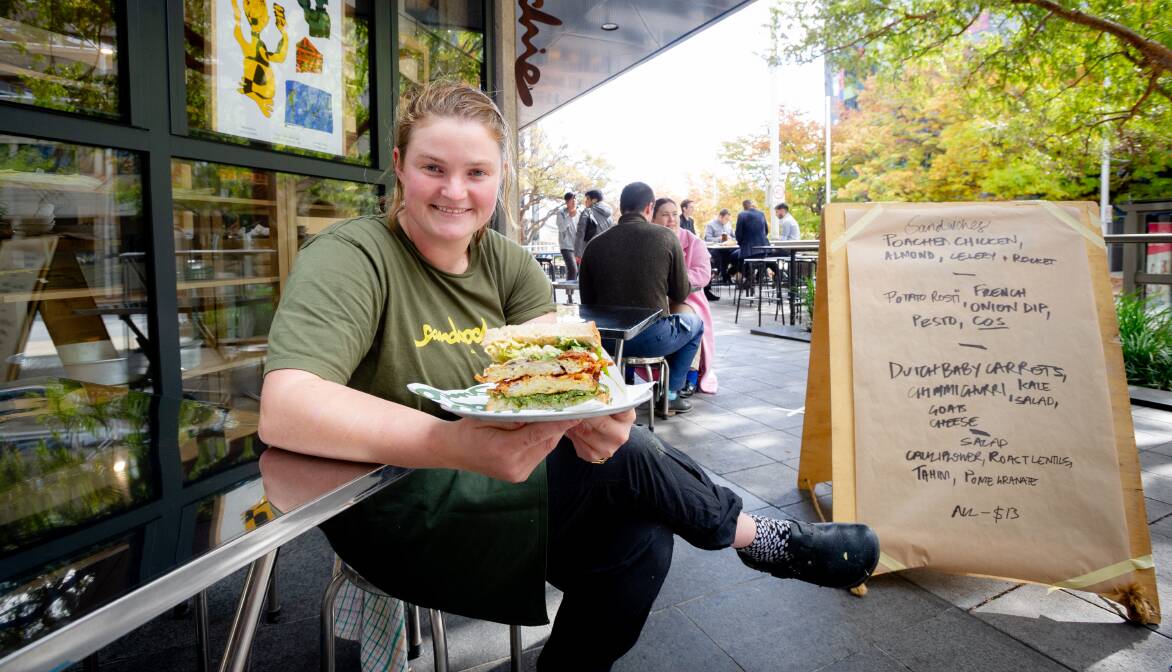
It used to be a Hard Rock Cafe or Coca Cola T-shirt that showed a fashionable connection between a customer and brand.
These days it's as likely to be a local brewery or even the smallest of suburban cafes displaying their brand on the walking billboards of their customers.
As cafes, restaurants and pubs look to bring in more customers through increasingly diverse advertising, the traditional approach of merchandise is on the rise.
As Canberra companies like Bentspoke and Capital Brewing have expanded their brands nationally so, too, has their merchandise range.
"The cool thing about Capital is it's from Canberra, and Canberrans are really passionate about Canberra," the brewery's marketing manager Jonny Day said.
"So merch is an opportunity for them to get around their local brewery and show how proud they are."
But it's not just the bigger players getting involved. Even quaint cafes and restaurants are selling their own branded tees, hats and totes to eager customers.

Lucy Holm, owner and chef of sandwich shop Sandoochie, in the heart of Canberra's CBD, attests to the effectiveness of merchandise for branding.
Dubbing customers who proudly wear her merch as "Sandoochies in the wild", she said it sparked conversations and served as an icebreaker among people.
"My friend does Irish dancing at a random hall in Melbourne, and she was dancing when an older woman sidled up to her with a Sandoochie shirt on," she said.
"She said, 'Hey, that's my friend's sandwich store'! And she replied, 'I love Sandoochie'!
"It's a bit of a talking point and creates a brand and an identity for your shop, which is pretty important these days."
During the pandemic, hospitality businesses sought innovative ways to stay afloat and, even now, merch has remained popular.
For Capital, the rise of the craft beer industry has been in large part due to the passion of its customers.
Mr Day said during the pandemic people sought to support local businesses and it was "great to see customers around rocking their red hat".
Tucked away in Mawson is a tiny Vietnamese cafe, known as Lil' Milk Bar. Owners Linh Tran and Michael Mathew said it was actually the customers who first asked if they had merchandise.
"A customer told me she took her grandkids to the playground, and people asked her where the merch is from and where the cafe is," Ms Tran said.
"So, selling merch is free advertising for us and an old-style way to reach out to people and to target our customer base."
Professor of marketing at the University of NSW, Nitika Garg, said it was a successful advertising strategy because customers wearing a brand's merchandise were effectively paying to provide authentic advertising for the business.
"It implies that the customer has a very positive attitude towards the restaurant or cafe, and they are willing to wear something to promote it," Professor Garg said.
"They've given them their money and their heart because they are going that extra step."
The dream for a business was to become "part of a consumer's identity", Professor Garg said.
"When they do, they become extremely loyal," she said.
One thing is clear: sales of merchandise are far more about advertising than revenue.
But for Ms Holm, that's a deal worth making.
"We'd have to sell a lot of T-shirts in order to make that original cost back ... it's [about] the brand identity and it's a really cool thing to have," she said.
We've made it a whole lot easier for you to have your say. Our new comment platform requires only one log-in to access articles and to join the discussion on The Canberra Times website. Find out how to register so you can enjoy civil, friendly and engaging discussions. See our moderation policy here.







